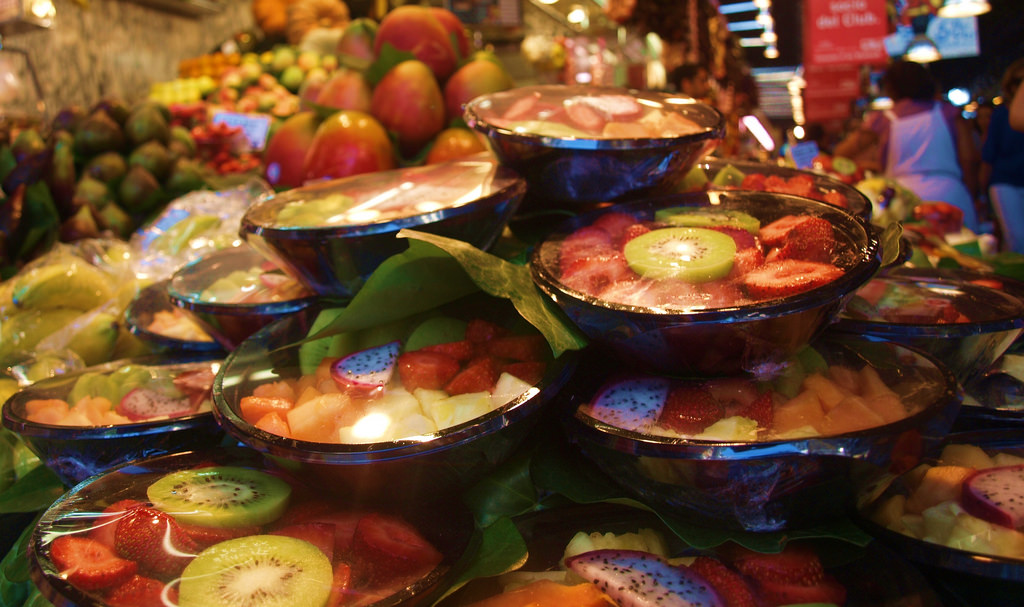Whether it’s David Attenborough’s Blue Planet II or reports of “islands” of plastic waste in the ocean that are bigger than Mexico, the problem of excess plastic is – rightly – becoming impossible to ignore.
And, once you start thinking about it, you see it everywhere. Hundreds of disposable straws at the bar of your local pub, throwaway crisp packets in even bigger throwaway packaging to keep multipacks together, plastic bags discarded in rivers and empty water bottles littering the streets. Even when properly disposed of, plastics can be very difficult to recycle – there are so many different types – and most ends up in landfill and, as we have seen above, in the sea.
The pollution plastic causes is there for the long run, too. Unlike fabrics or wood, which decompose in the right conditions, plastic just sticks around. Fish and birds mistake it for food, causing choking and poisoning, and creatures in the deepest part of the ocean have now been found to have plastic in their stomachs.
It’s a terrifying and overwhelming problem and the lack of an obvious solution means that it’s tempting to just put it to the back of our minds and cover our ears. Small steps count, like the 5p plastic bag tax in the UK, but everything seems like a drop in, well, the ocean.
Prime Minister Theresa May has vowed to eradicate ‘non-essential’ plastic within 25 years, and other initiatives are underway that encourage people to use reusable coffee cups and promote biodegradeable packaging. One problem is the availability of products – I’d certainly buy, say, little wooden disposable cutlery like the forks in fish and chip shops over plastic disposable cutlery for a picnic or a party, but I’ve never seen it on sale in a regular supermarket. I would prioritise my spend in the weekly shop on products that were making an effort with their packaging, if there were decent alternatives available.
But what is ‘non-essential’ plastic will be up for debate at some point in the future, and there is a group of people whose needs are almost certain to be ignored. Disabled people.
What is “non-essential” to one person is crucial to another
For many disabled people, drinking through a straw is far more effective and dignified than doing so without. And, until paper straws are widely available, they will be stuck using the plastic ones unless they want to spend a small fortune (relatively speaking) on a reusable metal one that gets manky in the bottom of their bag. Similarly, buying a pre-made sandwich can be far more achievable than making one from scratch for a lot of people. And as long as these come in transparent, triangle-shaped plastic packaging, that’s what we’ll have to use.
But the biggie, the one that really seems to rile up the non-disableds, is pre-packaged, pre-prepared fruit and vegetables. While happily munching on a snack surrounded by plastic packaging, people get outraged at the idea that somebody else might benefit from a pre-peeled orange or pre-chopped vegetables. Quite why this invites the fury that has never been aimed at a packet of crisps is a mystery to me, but these important parts of our diet are absolutely essential if many disabled people want to get their five a day.
This was reignited this week when a ‘cauliflower steak’ was on sale in Marks & Spencer. The chopped, pre-packaged raw cauliflower was expensive compared to its full-size counterpart but, for many, was easier or safer to prepare than a fresh, normal-sized one because it was ready to cook, exactly as it was.
However, if enough people on Twitter shout “lazy!” at the retailer, the offending item will be removed from sale and those disabled people who aren’t safe to use sharp knives or don’t have the equipment they need to chop a large vegetable will go without. Again. That’s exactly what happened.
Stigma
It is true that many pre-prepared fruits and vegetables come in excessive packaging that is overly made from plastic materials. So do other products. And this is a problem that has to be faced up to.
However, focusing on accessible healthy foods demonises and stigmatises the people who need to use them rather than curing the problem. If you deem a cauliflower steak “non-essential”, then the person who was briefly really excited that they could try one will soon be disappointed. And just because it’s not essential to the masses does not mean that it does not play an important role in the lives of disabled people.
Forget calling people lazy and instead focus on what can be done that doesn’t disadvantage people who need food to be prepared and ready in an accessible way if they are to have an attempt at a healthy, balanced diet.
What can be done?
Rather than stigmatising people who need pre-prepared, pre-packaged food, let’s look at adapting the packaging so that it is not a plastic-filled nightmare. Using alternative materials, many of which are currently under development, and improving plastic recycling options would be a vital start, and encouraging big businesses to invest in research and development to create innovative new materials – or find ways to use old recycled plastics – will incentivise them to manufacture products that remain accessible without contributing to the plastic graveyard that the world is becoming.
Photo: Oh Barcelona/Creative Commons

